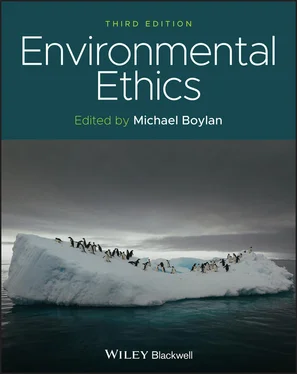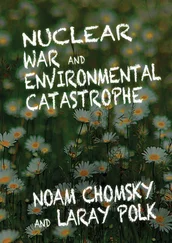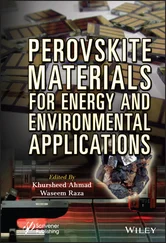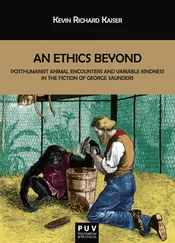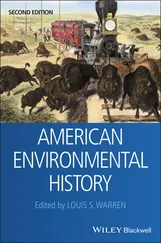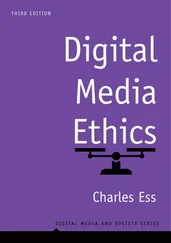Environmental Ethics
Здесь есть возможность читать онлайн «Environmental Ethics» — ознакомительный отрывок электронной книги совершенно бесплатно, а после прочтения отрывка купить полную версию. В некоторых случаях можно слушать аудио, скачать через торрент в формате fb2 и присутствует краткое содержание. Жанр: unrecognised, на английском языке. Описание произведения, (предисловие) а так же отзывы посетителей доступны на портале библиотеки ЛибКат.
- Название:Environmental Ethics
- Автор:
- Жанр:
- Год:неизвестен
- ISBN:нет данных
- Рейтинг книги:4 / 5. Голосов: 1
-
Избранное:Добавить в избранное
- Отзывы:
-
Ваша оценка:
- 80
- 1
- 2
- 3
- 4
- 5
Environmental Ethics: краткое содержание, описание и аннотация
Предлагаем к чтению аннотацию, описание, краткое содержание или предисловие (зависит от того, что написал сам автор книги «Environmental Ethics»). Если вы не нашли необходимую информацию о книге — напишите в комментариях, мы постараемся отыскать её.
Environmental Ethics,
Environmental Ethics
Environmental Ethics
Environmental Ethics — читать онлайн ознакомительный отрывок
Ниже представлен текст книги, разбитый по страницам. Система сохранения места последней прочитанной страницы, позволяет с удобством читать онлайн бесплатно книгу «Environmental Ethics», без необходимости каждый раз заново искать на чём Вы остановились. Поставьте закладку, и сможете в любой момент перейти на страницу, на которой закончили чтение.
Интервал:
Закладка:
Trump played upon an “anti-science” sector of the country that has been around and popular among many at least since the “Scopes Trial” in 1925. There are various theories behind why this is the case. Often, the answer reverts back to the 400-year antagonism between Christianity and Science. 3Another possible source of skepticism is the rise of public paranoia about political forces stronger than themselves that are “taking over.” 4Some of these folks become anti-vaccination people (some who believe that Bill Gates is injecting micro-probes into their arms when they get COVID-19 shots in order to get control of them).
Certainly, the anti-science folk (for whatever reason) are the foot soldiers that Donald Trump used to walk away from the Paris Accords and to eliminate automobile emission guidelines and manufacturing emission guidelines. These actions moved the US and the world away from responsible climate policy.
Now that Trump is no longer president, we may move back in the other direction and once again regain the justified hope that I (and others at the Center for American Progress) once felt. We have still got a chance to get this under control, but there isn’t much “wiggle room” left.
Notes
Michael Boylan
1 1 For details on this conference see: https://unfccc.int/process-and-meetings/conferences/past-conferences/copenhagen-climate-change-conference-december-2009/copenhagen-climate-change-conference-december-2009(accessed 18 May 2021).
2 2 For details on the Paris Climate Agreement see: https://unfccc.int/process-and-meetings/the-paris-agreement/the-paris-agreement(accessed 18 May 2021).
3 3 One account of the modern versions of “anti-science” sentiment in the United States can be found in Sahotra Sakar, Doubting Darwin: Creationist Designs on Evolution (Oxford: Blackwell, 2007).
4 4 One contemporary account set primarily in the context of the COVID-19 pandemic explores several versions of anti-science and public paranoia: John Bodner, Wendy Welch, and Ian Brodie, Covid-19 Conspiracy Theories, QAnon, 5G, The New World Order, and Other Viral Ideas (Jefferson, NC: McFarland, 2020).
Details on the Third Edition
Environmental Ethics is one of my three texts on applied ethics (the other two being Business Ethics and Medical Ethics ). The idea behind each book is to begin with theoretical material about ethics, in general, and then some comments on the underpinnings of this particular direction of applied ethics. Next, the texts take up important issues in the practice of the given area of practice (the environment, the business community, the practice of medicine). Finally, are chapters on contemporary issues in public policy.
What is new to this third edition:
Eight new chapters focused mainly on public policy.
A new theoretical chapter by the author, “What is ‘Nature,’ and Why Should I Care?”
The inclusion of Garrett Hardin’s “The Tragedy of the Commons” in the theoretical section.
The inclusion of Steve Vanderheiden’s “Globalizing Responsibility for Climate Change” in the Sustainability section.
A new student feedback piece in the online instructors’ manual that will assist professors and students in achieving the skills to address challenging cases that correspond to the sections of the book. This includes the new public policy section that guides students into creating a personal manifesto that they can share with policymakers.
I am hoping that this third edition will be even more action-oriented and meet the needs of “active education.” As time goes on, we must heed the cries of Greta Thunberg seeking action on the frontlines of environmental change. Perhaps, this book will nudge students forward in seeking action in this critical area of public policy that aims at saving the planet.
I would like to thank all the new contributors to this volume along with the referees and their helpful comments. I would also like to thank Marissa Koors, Charlie Hamlyn, Will Croft, and the rest of the Wiley-Blackwell team for helping to bring forth this third edition. Their dedication to this project has helped immensely. Finally, I’d like to thank my family: Rebecca, Arianne, Seán, and Éamon. They sustain me in my life.
Michael Boylan
Source Credits
The editor and publisher gratefully acknowledge the permission granted to reproduce the copyright material in this book:
Chapter 3
Garrett Hardin, “The Tragedy of the Commons,” Science , 13 December 1968: pp. 1243−1248. Reprinted with the permission of???
Chapter 4
Aldo Leopold, “The Land Ethic,” A Sand County Almanac: and Sketches Here and There , Oxford: Oxford University Press, 1949; pp. 41–48. Reprinted with the permission of Oxford University Press.
Arne Naess, “The Shallow and the Deep, Long-Range Ecology Movement,” Inquiry , 16 (1983): 95–100. Reprinted with the permission of Taylor & Francis Journals.
Carolyn Merchant, “Ecofeminism and Feminist Theory,” in Reweaving the World: The Emergence of Ecofeminism (eds Irene Diamond and Gloria Orenstein), Sierra Club Books, 1990; pp. 77–83. Reprinted with the permission of the author.
Karen J. Warren, “The Power and Promise of Ecological Feminism,” Environmental Ethics , 12 (1990): 125–126, 138–145. With kind permission from the author.
Janna Thompson, “Aesthetics and the Value of Nature,” Environmental Ethics , 17 (3) (1995): 291–306. Reprinted with permission.
Chapter 5
Onora O’Neill, “Environmental Values, Anthropocentrism and Speciesism,” Environmental Values , 6 (1997): 127–142. Reprinted with permission.
Holmes Rolston III, “Environmental Ethics: Values in and Duties to the Natural World,” from F. Herbert Bormann and Stephen R. Kellert (eds.), The Broken Circle: Ecology, Economics, and Ethics , Yale University Press, 1991; pp. 228–247. Reprinted with the permission of Yale University Press.
Paul Taylor, “Respect for Nature: A Theory of Environmental Ethics,” from Respect for Nature , Princeton University Press, 1986; pp. 248–259. c 1986 Princeton University Press. Reprinted with permission.
James P. Sterba, “Reconciling Anthropocentric and Nonanthropocentric Environmental Ethics,” Environmental Values , 3 (1994): 229–244. Reprinted with permission.
Brian K. Steverson, “On the Reconciliation of Anthropocentric and Nonanthropocentric Environmental Ethics,” Environmental Values , 5 (1996): 349–361. Reprinted with permission.
James P. Sterba, “Reconciliation Reaffirmed: A Reply to Steverson,” Environmental Values , 5 (1996): 363–368. Reprinted with permission.
Chapter 7
Peter Singer, “Animal Liberation,” New York Review of Books , April 5, 1973 c Peter Singer, 1973. Reprinted with the kind permission of the author.
Tom Regan, “The Radical Egalitarian Case for Animal Rights,” from In Defence of Animals (ed. Peter Singer), Blackwell, 1985; pp 320–330. Reprinted with the permission of John Wiley & Sons Ltd.
Mary Anne Warren, “A Critique of Regan’s Animal Rights Theory,” from Between Species , 2 (4) (1987): 331–333, see at: http://digitalcommons.calpoly.edu/bts. Reprinted with permission.
Dale Jamieson, “Against Zoos,” in In Defense of Animals: The Second Wave (ed. Peter Singer), Blackwell, 2005; pp. 132–143. Reprinted with the permission of John Wiley & Sons Ltd.
Chapter 8
Stephen Gardiner, “A Perfect Moral Storm: Climate Change, Intergenerational Ethics, and the Problem of Moral Corruption,” Environmental Values , 15 (3) (August 2006): 397–413. Reprinted with permission.
Читать дальшеИнтервал:
Закладка:
Похожие книги на «Environmental Ethics»
Представляем Вашему вниманию похожие книги на «Environmental Ethics» списком для выбора. Мы отобрали схожую по названию и смыслу литературу в надежде предоставить читателям больше вариантов отыскать новые, интересные, ещё непрочитанные произведения.
Обсуждение, отзывы о книге «Environmental Ethics» и просто собственные мнения читателей. Оставьте ваши комментарии, напишите, что Вы думаете о произведении, его смысле или главных героях. Укажите что конкретно понравилось, а что нет, и почему Вы так считаете.
